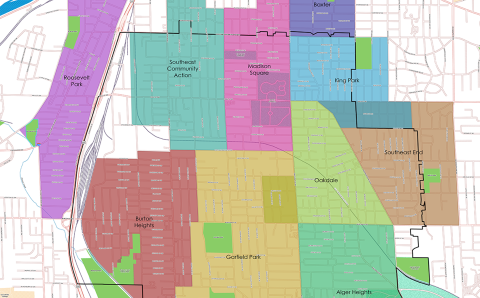Eric Sarwar, a Christian Reformed church planter in Artesia, Calif., is a global partner with Princeton (N.J.) Theological Seminary’s Overseas Mission Study Center’s 2023-24 Residential Study Program. A pastor, songwriter and author of Pakistani descent with a doctorate in Intercultural Studies from Fuller Theological Seminary, Sarwar is writing a history of the North Indian Punjab Mission to “help the Western church to understand and engage with the significant rise of the Indian and Pakistani diaspora globally and locally.” He was ordained in the CRC in 2016.
During Sarwar’s PhD dissertation on the Punjabi Psalms at Fuller, he “realized that the history of the Punjab mission needs separate research.” He applied to Princeton’s OMSC residential program in November 2022 and was accepted to research “Practices of Presbyterian Missions in Pakistan: Decolonizing Missiology in the 21st Century Muslim Context.” He is the first global research partner of Pakistani descent in the center’s 100-year history.
“The correct interpretation of Punjabi mission history is the responsibility of the scholars from the Punjabi context,” Sarwar said. He “will explore the historical practices of Presbyterian missions in pre-and post-partition (1947) North India and Pakistan, the perils and pathos of the local leadership, and the future of missions in the Islamic Republic of Pakistan and the Indo-Pak diaspora globally.”
Of the beginnings of local leadership, he said, “My work focusing on the Sialkot mission began with Andrew Gordon in 1856. The conversion of the outcaste tribes triggered the native church growth movement without any means or methodology of missionary efforts. Through divine intervention in 1873, with the eruption of the mass movement in central Punjab, which was neither planned nor planted by missionaries, they were caught by surprise and had to adjust to it.”
“God turned the table upside down by choosing the bottom of society and bringing them to the top,” Sarwar said, although he notes it’s a misconception that Punjabi Christianity only comprises the “socio-economic despised castes in the Indian subcontinent … the historical documentary pieces of evidence demonstrate that the early professing Christians were from Hindus (high-caste, middle, lower and outcaste), Muslims (Sufis, Shia and Sunni), and Sikhs population in Punjab – onward from 1873, the new identity manifested, creating a casteless Christ-following community around the Presbyterian's Sialkot mission in Punjab, North India.”
Christian believers in the region today number more than 55 million, according to Sarwar (official numbers are lower than this he says because the government does not provide accurate numbers for political reasons). They are among the most persecuted Christians in the world. Pakistan is rated 7 and India 11 in the 2023 Open Doors’ persecution watch list.
Related: Christian Persecution Higher Than Ever as Open Doors’ World Watch List Marks 30 Years (January 19, 2023)
Sarwar sees God’s hand in providing this placement for his work, noting that Princeton Theological Seminary profoundly impacted missions in North India and Punjab. From 1834 to 1914, he said, “the highest number of American missionaries who served in the Punjab mission graduated from the PTS.”
Sarwar is continuing to minister to his home church, Artesia (Calif.) Indo-Pak Church, which is partially supported through Resonate Global Mission, once each month to preach and serve communion. The church is supporting him and his family with prayer throughout his study period from August 2023 to June 2024. On the weeks he is not there, an interim pastor and guest speakers fill in.
Sarwar’s professional work includes four albums and five books on worship and music studies in the Urdu language. At Princeton, he enjoys leading Urdu/Punjabi songs during choir practice at the seminary. His latest book, Psalms, Islam, and Shalom, on which he recently delivered a lunch lecture at Princeton, was published in August 2023.
About the Author
Sarah DeGraff is a freelance news correspondent for The Banner. She lives in Madison, Wisc., where she is studying for her Masters in Horticulture at the University of Wisconsin.









